Sharp, painful feelings in the lower abdomen, urinating desire - cystitis causes unpleasant symptoms, the first signs of women's illness are exactly the same.This is an inflammatory process that takes place on the inner walls of the bladder.The causes and conditions for developing women's illness are much more common than in men.
What is cystitis
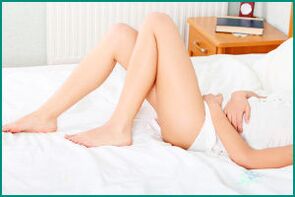
The bladder is a muscular organ located in the pelvic floor, which collects the urine before leaving the urethra.This is how the terminal section of the urine system is arranged in the male and female body.The bladder cavity gradually fills its two urges, which are conductive routes to the liquid filtered from the kidneys.When the organ is filled with more than half of its volume, the person feels the desire for urination.This is an unconditional reflex.
The internal environment of the urine system is sterile, as well as urine selected in a healthy person.In such conditions, infectious agents that can multiply multiply, as well as chemical irritants and allergens, lead to cystitis, the first symptoms of which immediately indicate the disorder of the chain.
In the bladder, inflammatory, allergic and chemical irritation can be caused by various causes.The intrusion of irritants The way inner penetration is also different.
In women, the so -called growing path is more typical, ie the pathogen enters the cavity, which rises from the outer urethra.
The same cystitis is located in a young child, especially in a baby who does not have proper care at home or the pathology of the postpartum period, organic disorders.
Causes of an event in women
The difference between the causes and circumstances that initiated cystitis signs of women should be clearly understood.The causes are infectious agents and non -infectious factors.The first group includes:
- Opportunistic microorganisms;
- pathogenic microorganisms;
- Causal agents of sexually transmitted diseases.
Opportunist microbes are called because they are exposed to their virulent properties as a good condition.In general, the causal agents of such diseases are representatives of normal biochenosis of the vagina or intestinal microflora.They are constantly present on the skin of the genitals and serve as a protective obstacle.As a girl becomes hypothermic and treats her with antibiotics, which suppress not only the pathogen but also the normal flora, the number of microbiochenosis is rapidly increasing.When they reached the critical mass, they cease to change the implementation of the barrier function, to change the pH value of the mucosa, and to become the cause of inflammation themselves.
In addition, the reproduction of microbes spreads in unusual areas, such as the urethra, bladder.The pathogens will be sources of inflammatory reactions during patients hospital, but may be most often infected in obstetric and gynecological classes.Microorganisms that cause nosocomial infections circulate in them.
These pathogens differ from ordinary people in that they acquire new properties during a repeated passage through weakened organisms, for example:
- Salmonella, distributed by droplets in the air;
- a large number of antibiotic resistance;
- immunity to broad spectrum antibacterial drugs;
- The ability to use unusual substances for this species are used as nutritional substrates.
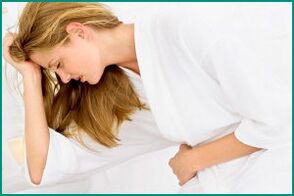
The clinical course of cystitis caused by pathogenic and opportunistic microorganisms, which has acquired new qualities during development, is characterized by painful manifestations.It is harder to fight against such cystitis as the range of antibacterial drugs has been narrowed.
Sexual diseases should not occur from urinary tract organs due to the characteristics of their anatomical structure.The most common of these are gonorrhea, trichomonas uretritis and cystitis.Through the urethra, which is wider and shorter in women than in men, the bacteria enter the bladder cavity and begin to reproduce there.
Non -infectious causes are divided into chemical and allergic factors.Chemical irritants can enter through the blood filtered by the kidneys.These can be medicinal substances, industrial harmful agents, food ingredients.
Allergic agents are used to deeply suppress the immune system, which responds to the hypersensitivity of common substances.
Further conditions that contribute to the development of inflammation are factors such as: hypothermia, synthetic lingerie, neglect of personal hygiene rules, acute and chronic gynecological disease, childbirth, irritating food consumption, pregnancy.
Early signs
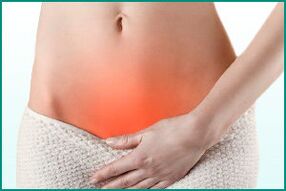
Women's first signs of cystitis are already from a specialist and the patient requires close attention to the body.You can suspect inflammation in the bladder by detecting your primary syndrome:
- constant itching in the external sex area;
- the appearance of discharge from the urethra;
- painful, harassing pain after urination;
- pain along the urethra;
- increased urgency to the toilet;
- Color changes, purity of urine, appearance of visible sediment.
If you do not pay attention to proper attention and do not treat the disease, the first symptoms will gradually deteriorate and the acute disease will become chronic.
Progressive pathology
The medical medical history of a patient with chronic cystitis can become quite large if therapy is ignored or the supplementary rules are not followed.Acute symptoms quickly lose their obvious nature and behind, they no longer cause significant discomfort.
But there are many signs of inflammation progress:
- adding a secondary infection in the kidneys;
- The aggravation attacks of the infection are accompanied by fever;
- The general condition deteriorates;
- The amount of urine selected is low;
- Urine has a strong smell, cloudy and mixed with spheres or blood.
Chronic cystitis does not occur in isolated;It is complicated to kidney and gynecological abnormal inflammatory processes.
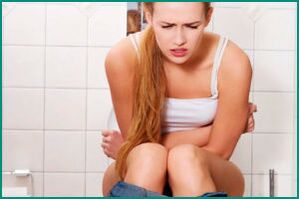
Body resistance gradually decreases, infections of other organs cause aggravation of cystitis, and increase body temperature, symptoms of general intoxication, severe weakness and malaise.
The urge to urinate is common, but the amount of fluid released is small.The reason for this is that it is too irritating to the bladder receptors due to changed pH balance and abnormal contamination.
The selection of urine is painful, the cramping pain does not allow you to relax at night.
The suprapubic region is tense, the palpation of the abdominal muscles in the lower abdomen is difficult.
Urine has an unpleasant, typically spicy smell.When observation, you may notice the sediment that falls to the bottom.
Classic signs of acute and chronic cystitis
The infectious agent, the chemical irritant or the allergenic contact first occurs in an acute procedure.The symptoms appear clearly and obviously: sharp pain during urination, uncomfortable bladder emptying, abdominal pain, itching and burning at the urethra exit.Temperatures, nausea or weakness may increase in short -term, loss of appetite, and correlation can be an aggravation of symptoms after consuming irritating foods or drinks.
Chronic pathology is to delete symptoms, the presence of constant discomfort in the suprapubic region and offensive pain.In the remission phase, the patient feels healthy enough.Aggravation occurs after hypothermia, irritation of food or drinks, or repeated contact with the allergen.
Types of cystitis in women
Bladder inflammation is classified according to various criteria.
The main types of cystitis are as follows:
- By nature of the process: acute or chronic;
- Due to the occurrence: bacterial, chemical or allergic;
- According to related factors: postpartum, secondary, postoperative.
It occurs after postoperative cystitis abortion, transporting caesarean section and urine is released via a catheter.This medical device can be a source of infection.
Characteristics of postpartum cystitis
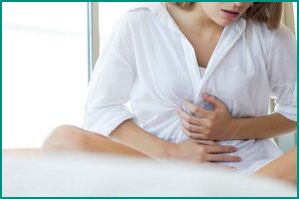
The postpartum period requires close attention and postpartum woman, especially at home.The rules for careful hygiene care and adherence to frequent urination help to avoid possible complications of postpartum periods and the addition of urinary tract infections.
Postpartum cystitis occurs in the same way as any other, but treatment is difficult as not all medicines can be taken.In addition, this period is characterized by damage to the external genitals, which makes it difficult to urinate and use the usual toilet.
Severe forms of the disease are rarely developed because the treatment of cystitis does not cause significant difficulties.But most often we have to deal with a chronic form that is difficult to correct with medicines if the pathogen is multidrug-resistant microorganism.
Diagnosis
Usually it does not cause difficulties after taking thorough history, urine testing and patient examination.Analysis results reveal differences from the norm: the presence of specific gravity, altered pH levels, blood, leukocytes, sediment, urate and oxalate crystals have been reduced.
If necessary, an ultrasound examination and X -ray contrast image will be prescribed to clarify the etiology of the disease.
Treatment
Comprehensive treatment of acute or chronic cystitis is essential.At the same time, the use of various therapeutic methods contributes to the patient's rapid healing.
The main therapeutic agents:
- antimicrobial tablets;
- Anti -inflammatory drugs;
- painkillers and antispasmodes;
- physiotherapy (in remission);
- diet;
- Traditional methods.
Medicines for treating cystitis are prescribed by a specialist.Anti -inflammatory drugs are preferably prescribed from a group of non -steroidal drugs;They have antispasmic and analgesic activity.
The diet includes exclusion of dietary, pickled, spicy foods that have irritating effects.In this case, drink at least two liters of fluid daily to disinfect the bladder.
Folk recipes
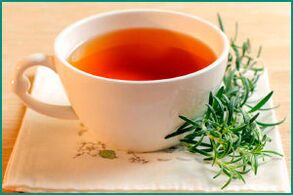
Alternative medicine has gained great experience in treating urological infections.Recipes have many positive opinions that confirm the effectiveness of the methods.But they can only be used in combination with drug treatment.
Good results are obtained by cooking the tincture of parsley root, chamomile and lingonberry leaves.Drinking Lingonberry juice has an excellent disinfectant effect.The healing properties of "bear ears" and blueberries have long been known.You can prepare the following composition and take it three times a day after meals:
- Remove dry herbs from rosemary, knight, centaury and rose in equal proportions;
- Pour boiling water for 30 minutes;
- Boil in a water bath for 20 minutes;
- leave for 30 minutes;
- Filter and drink as above.
Contraindicated alcohol consumption, strong drinks or smoke during treatment.
Prevention
Measures to prevent cystitis are simple but effective.Care, the rules of sexual culture, frequently changing hygiene products and underwear, avoiding hypothermia, and taking care of the irritation of food and drinks.
























